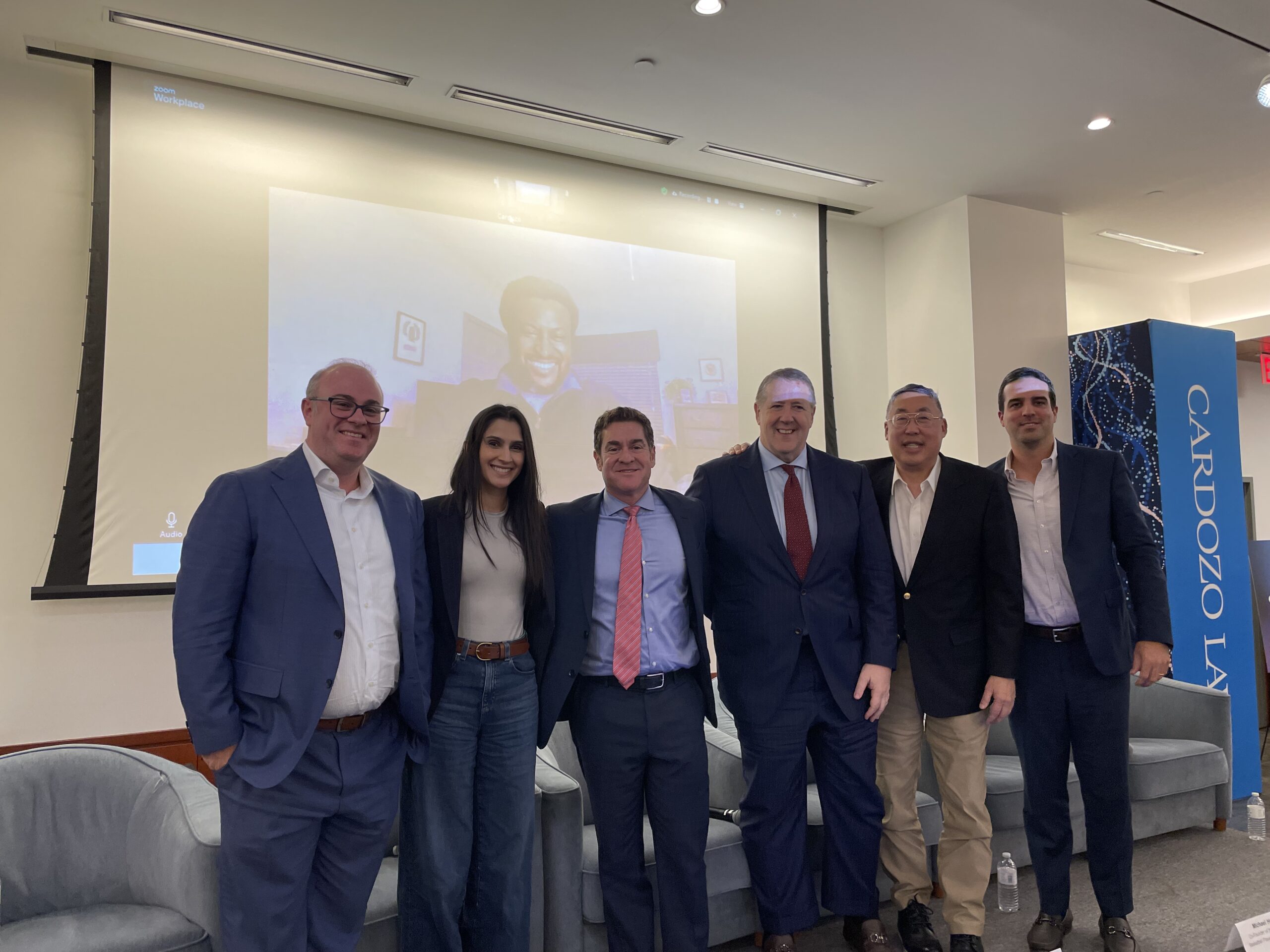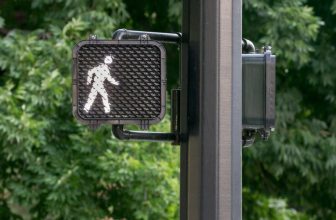
On Wednesday, November 12, 2025, Cardozo’s Sports Law Society and Antitrust Society hosted a lecture and panel discussion regarding the implications of the House v. NCAA[1] lawsuit and settlement. This included the potential for future antitrust liability as a result of the settlement, Title IX implications, the employment status of college athletes, and more. The event was titled “THE HOUSE ALWAYS WINS: HOUSE v. NCAA Sports & Antitrust Law Panel.” Registration for 2 New York State CLE credits were available, and the lecture and panel were followed by a networking reception.
The lecture was given by Professor Marc Edelman, a notable sports law professor and an expert on the intersection of sports, antitrust law, and labor law. He has testified in front of government agencies and legislatures regarding Name, Image and Likeness (NIL), has been cited by courts and the media on how the Sherman Antitrust Act applies to professional sports, and has presented at more than 200 academic conferences.
Professor Edelman’s lecture was an overview of an essay that he wrote with Rutger’s Law School Professor, Michael A. Carrier, which explains why the NCAA can only establish a salary cap through collective bargaining, and not through the House settlement. He took the audience through the history of the antitrust suits against the NCAA over the years and explained the flaws in the NCAA’s legal strategy when litigating NCAA v. Alston[2], emphasizing its misguided faith in the conservative members of the Supreme Court, Justice Kavanaugh’s scathing concurrence of many NCAA policies, and how the case opened the floodgates for litigation, including House. Professor Edelman ended his lecture by explaining the non-statutory labor exemption to the Sherman Antitrust Act, why a cap of $20.5M that schools can pay college athletes that was agreed to in the settlement is still an antitrust violation, and why this settlement cannot replace collective bargaining with college athletes.
The panelists were Professor Edelman, Bob Boland (Partner, Shumaker LLP), Michael Hsu (Co-founder, College Basketball Players Association), Adam Dale (Partner, Winston & Strawn LLP), Neha Vyas (Associate, Winston & Strawn LLP), Paul McDonald (Managing Partner, PL McDonald Law LLC), and Chris Brolley (Associate, Troutman Pepper Locke LLP). The panel was moderated by Bradley Rosen (Treasurer, Sports Law Society) and Joshua Bergman (Vice President, Sports Law Society).
Mr. Dale and Ms. Vyas worked on the House settlement. They delved into the difficulties of adequately representing all damages classes, whether NIL payments and revenue sharing as structured in the House settlement may implicate Title IX, and more. The rest of the panel gave their thoughts on whether the House settlement could survive antitrust scrutiny and the status of appeals of the settlement. The conversation then moved to the concept of college athletes being classified as employees. They talked about potential legislation that would prevent athletes from being classified as employees, previous cases that attempted to address college athlete employment status, the upcoming trial of Johnson v. NCAA[3], which is being led by Mr. McDonald, and what unionization of college athletes would look like. The consensus among the panelists seemed to be that absent legislation, the prospect of at least certain college athletes being classified as employees is inevitable.
Bradley Rosen is a second-year law student at the Benjamin N. Cardozo School of Law and a Staff Editor at the Cardozo Arts & Entertainment Law Journal. Bradley is interested in sports, antitrust, and labor law. He is also the current treasurer for the Cardozo Sports Law Society.
____________________________________________________________________________________
[1] House v. NCAA, 545 F. Supp. 3d 804 (N.D. Cal. 2021).
[2] NCAA v. Alston, 594 U.S. 69.
[3] Johnson v. NCAA, 108 F.4th 163 (3d Cir. 2024).






